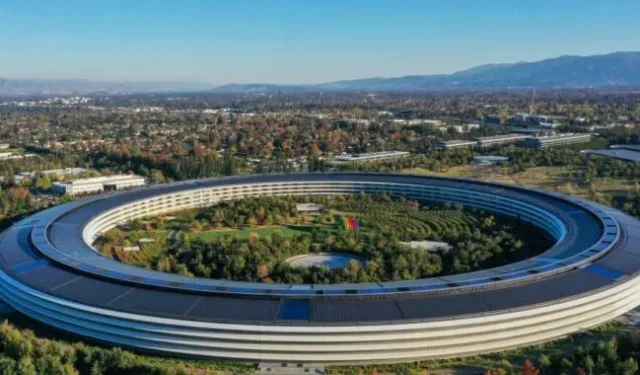Apple becomes first $3 trillion company since pandemic surges in demand

Apple became the first company to reach a $3 trillion market cap after its value surged $1 trillion in less than 16 months due to the coronavirus pandemic causing Big Tech to take off.
The iPhone maker became a $1 trillion company in August 2018, and two years later became the first company to be valued at $2 trillion. On Monday, the company’s shares rose 3 percent to $182.86, breaking the latest milestone before falling back to $182.
At the end of October, Apple briefly lost the title of the world’s most valuable company to Microsoft. However, a strong rally in November brought back his crown. It then surged towards the end of 2021 and has increased its market value by half a trillion dollars since November 15.
Only a handful of companies are worth more than $1 trillion, including Tesla and Amazon. Alphabet, Google’s parent company, and oil group Saudi Aramco are valued at around $2 trillion, while Microsoft’s market value is roughly $2.5 trillion.
Apple shares are up more than 30 percent in 2021 as the company skilfully navigated the supply chain crisis and capitalized on additional demand during the pandemic for iPhones, Macs and iPads as customers upgraded their home offices.
The company’s shares jumped in early December after analysts at Morgan Stanley raised their 12-month price target to $200, arguing that investors had not yet factored in prices for an expected launch of augmented and virtual reality devices.
In December, Moody’s also upgraded Apple’s rating to three-A, making Apple the third company to receive a three-A rating from the ratings agency, along with Microsoft and Johnson & Johnson. S&P Global still rates Apple at AA+, one notch below AAA.
Tom Forte, an analyst at DA Davidson, said investor enthusiasm for Tesla and electric vehicles has also spilled over into Apple stock in hopes that the iPhone maker will enter the auto industry in the next few years.
There was also a lot of activity in the derivatives markets around Apple as traders bet that the company’s stock would continue to rise.
Apple’s market value rose nearly $2.7 trillion in ten years under Tim Cook, surprising critics who questioned his credibility after he took over from Steve Jobs.
Cook’s success since then has been based on his behind-the-scenes ability to manage supply chains and sell products in massive quantities while fending off regulatory and political threats in Washington, Brussels and Beijing.
“Cook was seen as a safe but fairly conservative bet,”said Ben Wood, chief analyst at CCS Insight. “But what he did is just amazing. He made the iPhone franchise the most profitable consumer electronics product in history.”
Morgan Stanley analyst Cathy Huberty noted that Apple’s share price has risen by about 500 percent in the past five years alone, outpacing the S&P 500 index, which has risen by about 105 percent over the same period.
As a result, Apple is now trading at a historically high price-to-earnings ratio of over 30, compared to a three-year average of 23.4, according to D.A. Davidson.
But few analysts believe stocks are in bubble territory. Of the 45 analysts covering Apple, 35 rate it as a buy and two as a sell, according to Bloomberg.
The bullish outlook reflects Apple’s revaluation on Wall Street given its bulging high-margin services business, which generated regular revenue and reduced its reliance on iPhone replacement cycles.
Apple, which generated more than $1 billion in revenue per day in the fiscal year ending September, now has 745 million paid subscribers for an ever-growing range of services including music streaming, on-demand video and fitness, and warranty coverage.
The services business generated almost $70 billion in revenue last year, double what it was four years ago. In the previous quarter, the division’s margin reached a record 70.5%, more than double that of equipment sales, according to Evercore ISI.
One of the biggest risks for Apple and its stock is that policy changes will upend the fundamentals of the services business.
Lawmakers in Washington have raised questions about the $8 billion to $12 billion annual payments Alphabet is making to make Google Search the default on its devices, while others target Apple’s App Store business model of 15 to 30 percent cost cuts.. some deals.
So far, Apple has come relatively unscathed. In the US, Epic Games sued the company last year for allegedly illegal monopoly, but Epic lost on nine out of ten points. When Apple appealed one loss, a higher court granted its request and set aside the lower court’s decision to open the App Store to competing payment platforms.
Meanwhile, Apple has also greatly expanded its range of hardware with the release of AirPods, Apple Watch and other accessories.
Huberty noted that the market for “wearables”like the Apple Watch was virtually non-existent in 2014, but is now “a $38 billion business, the size of a Fortune 120 company.”
Leave a Reply